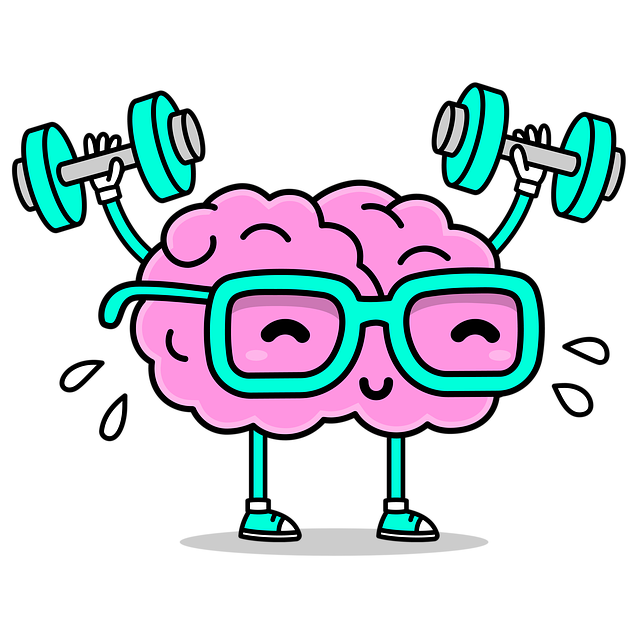Creating a successful mental wellness podcast series requires diversifying content with solo presentations, expert interviews (including online therapy for children), panel discussions, and storytelling. Platforms should balance accessibility, reach, social media integration, and interactive elements like Q&A sessions or community forums to foster a supportive environment. Online therapy formats, including live podcasts and on-demand audio, revolutionize mental wellness education by offering dynamic, personalized experiences with real-time crisis support and self-paced learning.
“Unveiling the power of mental wellness podcasts as a revolutionary tool for young minds, this comprehensive guide delves into the art of creating engaging content tailored to children’s unique needs. From choosing the perfect format—interviews, panels, or storytelling—to selecting the ideal streaming platform for maximum reach, we explore strategies to captivate young listeners.
Additionally, learn how incorporating child-friendly metaphors and collaborating with experts can make complex mental health topics accessible. Discover methods to build a supportive online community, fostering peer support and encouraging self-care practices through interactive features, transforming lives one podcast episode at a time.”
- Choosing the Right Format and Platform
- – Discussing various formats (interviews, panel discussions, storytelling)
- – Benefits of live vs on-demand podcasts
Choosing the Right Format and Platform

When producing a mental wellness podcast series, selecting the right format and platform is key to reaching your target audience effectively. A well-structured format can engage listeners and convey complex topics accessiblely. Consider incorporating a mix of solo presentations, interviews with experts in fields like therapy for children, and panel discussions to offer diverse perspectives. This blend not only keeps content dynamic but also provides a comprehensive approach to addressing various mental health concerns.
Choosing the right platform is equally important. Online therapy platforms are increasingly popular, allowing access to mental wellness resources from the comfort of home. When deciding, weigh factors such as accessibility, audience reach, and integration with social media for promotional purposes. Platforms that support interactive elements like live Q&A sessions or community forums can further enhance engagement, fostering a supportive environment for listeners seeking emotional regulation and conflict resolution techniques to manage burnout prevention.
– Discussing various formats (interviews, panel discussions, storytelling)

When producing a mental wellness podcast series, diversifying formats can greatly enhance engagement and cater to diverse listener preferences. Interviews provide an intimate setting for one-on-one conversations with experts like therapists specializing in online therapy for children, offering valuable insights into specific topics. Panel discussions, on the other hand, bring together multiple healthcare providers, enabling a robust exchange of ideas and perspectives on complex issues, such as conflict resolution techniques or cultural competency training. Storytelling segments, weaving narratives around personal journeys, can be particularly compelling, fostering empathy and providing inspiration for listeners facing similar challenges.
Each format offers unique advantages in conveying information effectively. Interviews allow for deep dives into specific aspects of mental wellness, while panels offer a broader spectrum of viewpoints. Storytelling adds an emotional layer, making the content more relatable. For instance, discussing online therapy for children can benefit from personal stories, demonstrating the tangible impact of such services on young minds. By incorporating these varied formats, podcast creators ensure accessibility and appeal to a wide audience, encouraging open conversations about mental health and well-being, including positive thinking strategies.
– Benefits of live vs on-demand podcasts

Live podcasts bring a unique dynamic to mental wellness content creation. The interactive nature allows for real-time engagement with listeners, fostering a sense of community and immediacy. This format can be particularly beneficial for discussing sensitive topics like therapy for children, as it enables on-the-spot crisis intervention guidance and adapts to the needs of those tuning in. Listeners can ask questions, share experiences, and receive immediate feedback from experts, making it an engaging and potentially transformative experience.
On-demand podcasts, while offering flexibility and accessibility, provide an opportunity for deep dives into specific mental wellness themes. They allow listeners to consume content at their own pace, revisiting segments as needed. This format is ideal for exploring complex topics such as inner strength development, incorporating Mind Over Matter principles, and providing a comprehensive library of resources for personal growth. The convenience of on-demand listening encourages consistent engagement with mental wellness practices and strategies.
Producing a mental wellness podcast series can be a powerful way to reach and support a wide audience, especially with the accessibility of online platforms. By choosing the right format, whether interviews, panel discussions, or storytelling, creators can engage listeners effectively. Additionally, considering the benefits of live versus on-demand episodes allows for dynamic interaction and flexibility. Incorporating topics like therapy for children and online therapy ensures relevant content that addresses modern mental health needs, making your podcast a valuable resource in today’s digital landscape.










